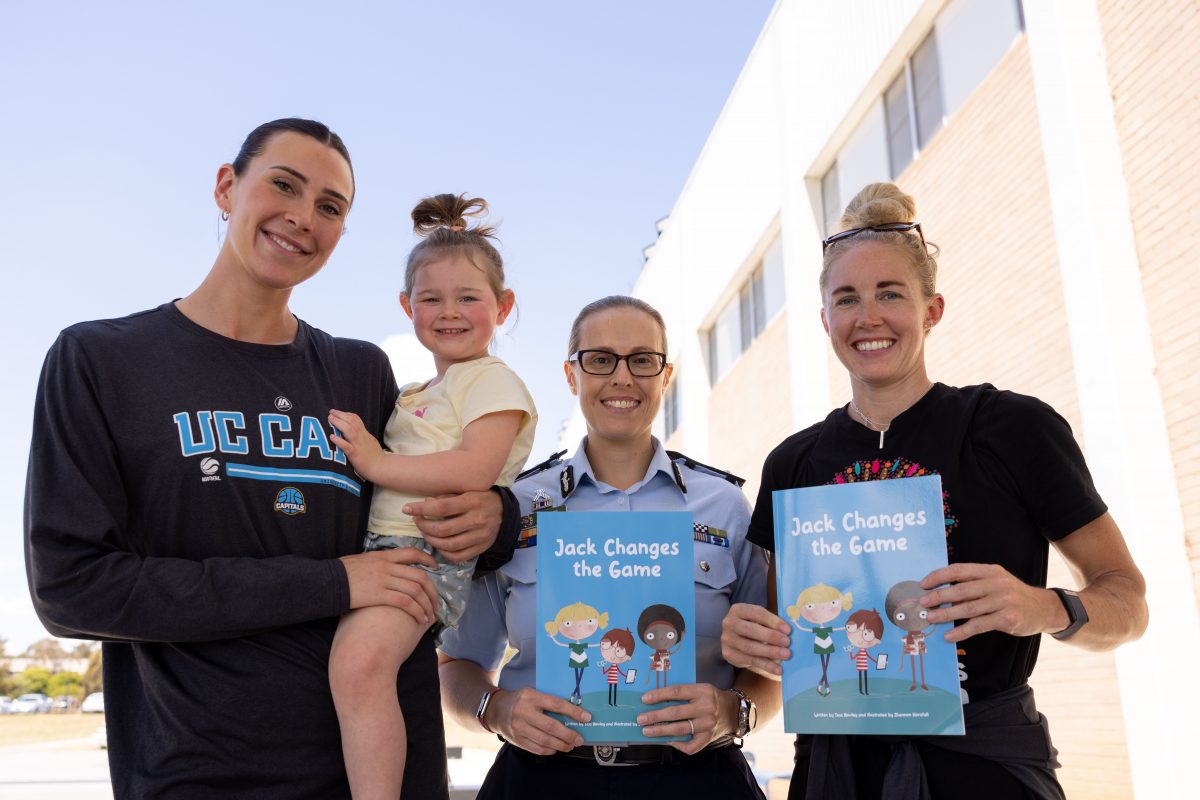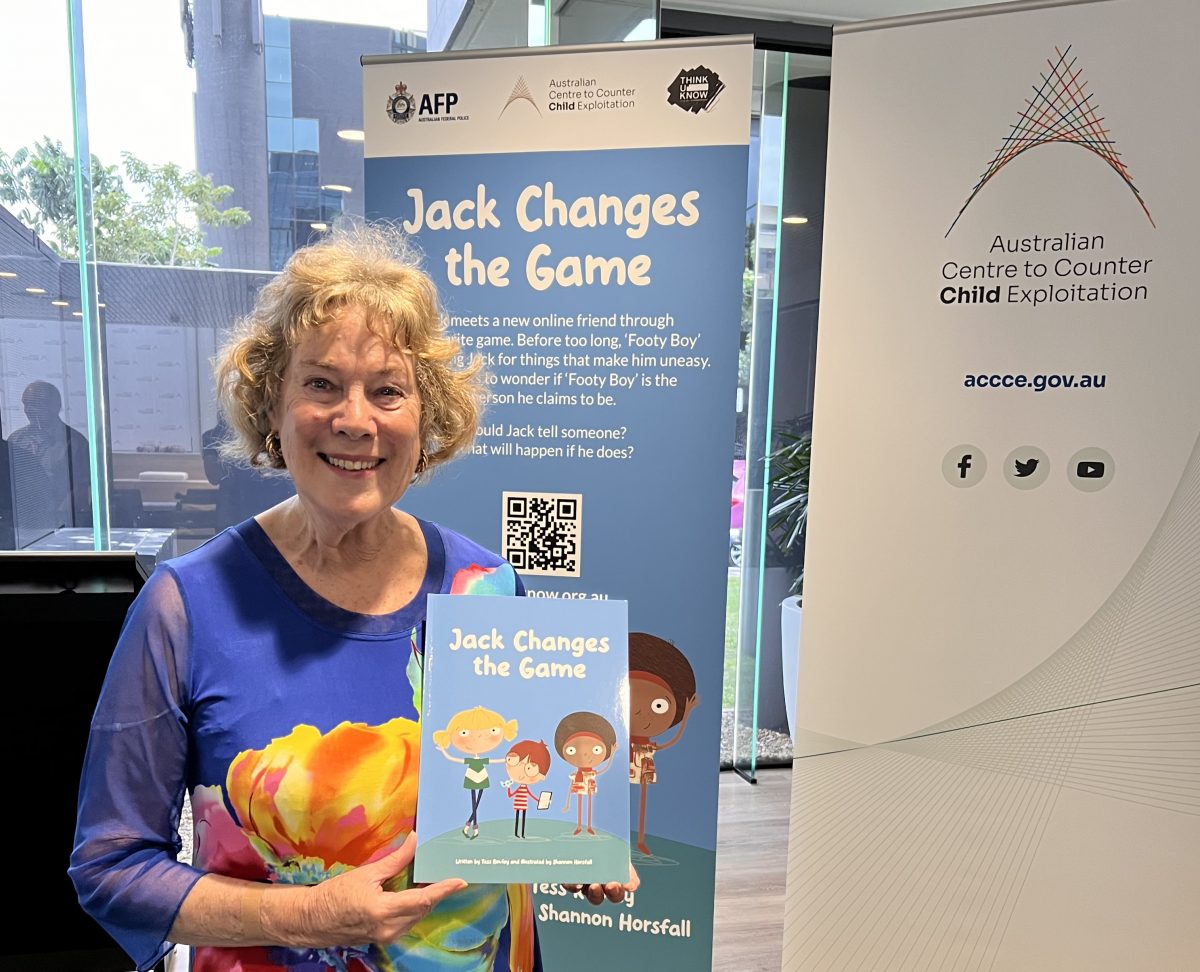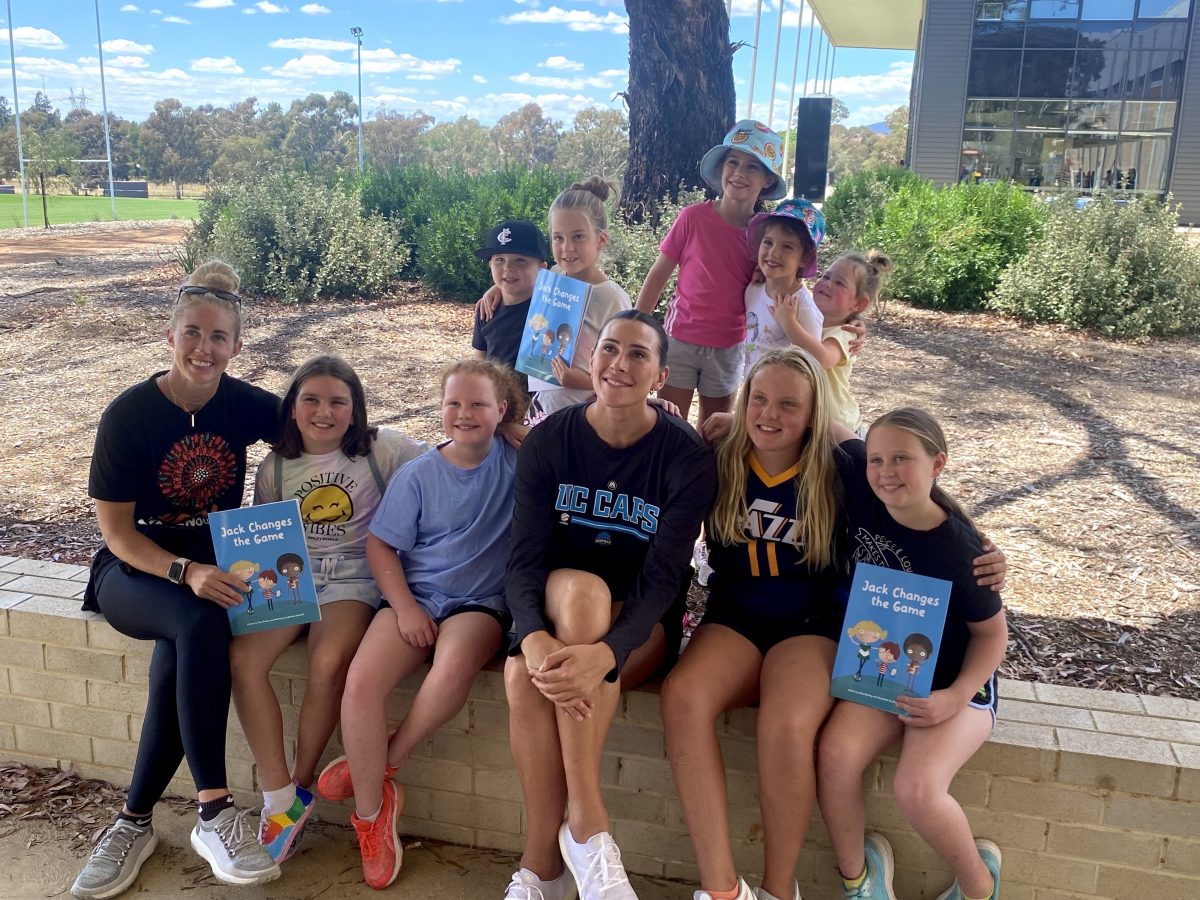
Alex Bunton and her daughter Opal-Mae Bunton and Britt Smart alongside AFP Acting Assistant Commissioner Hilda Sirec at the Jack Changes the Game media launch. Photo: AFP Media.
A new picture book has been unveiled by the Australian Federal Police (AFP) to educate young children about being safe online.
The children’s book, Jack Changes the Game, written by Australian children’s author Tess Rowley and illustrated by Shannon Horsfall, has been developed as an educative tool for parents, teachers and carers as students prepare to go back to school.
Created as part of the AFP’s ThinkUKnow program, in partnership with the AFP-led Australian Centre to Counter Child Exploitation (ACCCE), the picture book provides age-appropriate advice to families to help them recognise online child sexual exploitation, including online grooming, what to do about it and where to report it.
AFP Acting Assistant Commissioner Hilda Sirec said in the book, Jack meets a new online friend through his favourite game.
“Before too long, the new friend starts asking Jack for the things that make him uneasy. Jack starts to wonder if his friend is the person that he claims to be,” the acting Assistant Commissioner said.
“The book is based on a real report that we’ve received in the ACCCE, depicting a common scenario of a child being approached by playing a game online.
“The story aims to encourage critical thinking skills and gets young people to question online interactions.”
Ms Sirec said the book was a powerful resource that would help families begin important conversations, as well as teachers in classrooms.
“Around half of parents and carers regularly talk to their child about online safety,” she said.
“With children spending more time online, it’s important we teach them about safe practices and encourage help-seeking behaviours.
“Jack Changes the Game has been created as a resource to start conversations with 5- to 8-year-olds in a simple, yet effective way.”
The children’s book has been made available to all Australian primary schools with about 8500 hard copies distributed nationally in December last year.

The children’s book author of Jack Changes the Game, Tess Rowley. Photo: AFP Media.
The acting Assistant Commissioner said the book was a great initiative developed through the Australian Centre to Counter Child Exploitation (ACCCE).
“The ACCCE is at the forefront of combating online child sexual exploitation in Australia and it leads the coordination of national efforts to prevent, detect, investigate and disrupt this crime,” Ms Sirec said.
“In the past financial year, the ACCCE has received over 36,000 reports of online child sexual exploitation and research conducted by the ACCCE revealed that many parents of preschool and primary school-aged children do not believe they need to worry about their children online until they are in high school.
“Unfortunately, every day my teams face the reality. This is not the case. That’s why we’re here today – raising awareness and educating the community about online child sexual exploitation.”
She hopes Jack Changes the Game starts conversations in schools and in households across Australia about recognising signs of online grooming and how to get help by working together as a community to help keep children safe.

Alex Bunton, Opal-Mae Bunton and Britt Smart with some kids at the launch. Photo: Evelyn Karatzas.
The UC Capitals players Alex Bunton and Britt Smart were also in attendance and proud to support the AFP at the unveiling of the new children’s book.
UC Capitals star Alex Bunton said that as she had a daughter of her own, it was important to educate her about issues regarding online safety.
“Our world is technology these days,” Alex said.
“So, it’s amazing to have something that’s going to send a message and have a positive impact on her hopefully.
“I think being able to be a supporter of this and being involved with this is gonna be really important, especially for me to be able to be that role model for her and to carry on the message and start that conversation that some people might not be having.
“I feel very honoured to be involved in this and to be able to show my daughter that these things are real and to be able to feel comfortable talking to adults or the authority with things that she might feel uncomfortable with, and also be able to talk to me and not feel like that she has to shy away from it.”
Jack Changes the Game can be downloaded for free on the ThinkUKnow website.
For more information and to access the AFP’s online safety tips, visit www.thinkuknow.org.au.













